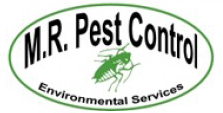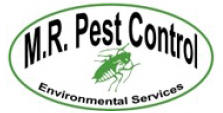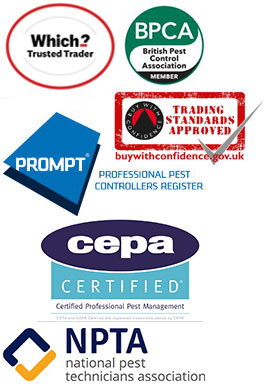Understanding Control Service Pest
Effective control service pest management safeguards properties by addressing infestations and preventing recurrence. Pests, such as rodents, insects, and birds, pose significant risks to health, hygiene, and property integrity if left untreated. Identifying these issues early ensures they are managed promptly and professionally.
Thorough pest identification forms the foundation of our approach. Misidentification can lead to ineffective solutions; for example, using incorrect treatments for specific insect species may exacerbate the problem. Our experts employ accurate diagnostic techniques to determine the exact nature and extent of infestations.
Addressing the source of infestations prevents future occurrences. Specialists locate nesting areas, feeding zones, or access points and implement treatments directly targeting these core issues. Without addressing the origin, infestations can spread across properties or reoccur.
Maintaining health and safety is paramount when controlling pests. Infestations can lead to the transmission of diseases, contamination of food supplies, and allergic reactions. Our treatments effectively eliminate pests while adhering to protocols that minimise risks to occupants, pets, and the environment.
Proactive measures deliver long-term results. Regular pest inspections, customised prevention plans, and ongoing monitoring prevent reinfestations. Adopting integrated pest management (IPM) strategies, we combine methods like traps, baits, and approved chemical treatments to ensure lasting pest control.
Professional pest control significantly reduces disruptions to daily operations. By scheduling treatments during non-peak hours and employing discreet solutions, we help businesses and homeowners maintain normal activity with minimal interference.
Common Pests And Their Challenges
Pests cause significant issues in both residential and commercial spaces, ranging from property damage to health risks. Identifying specific pests and understanding their challenges ensures effective control strategies.
Household Pests
Household pests disrupt daily life and pose serious health risks. Common examples include cockroaches, ants, termites, and rodents.
- Cockroaches: These pests spread diseases like salmonella and trigger allergies. They thrive in warm, moist environments, often invading kitchens and bathrooms.
- Ants: Ant infestations threaten food safety, as they contaminate stored goods. Carpenter ants can also weaken structural integrity by damaging wood.
- Termites: These insects cause costly property damage, consuming wooden structures undetected for years.
- Rodents: Rats and mice chew wires, cause structural damage, and spread diseases such as leptospirosis and hantavirus.
Preventing household infestations involves eliminating access points, maintaining cleanliness, and adopting targeted treatments.
Commercial Pests
Commercial pests impact operations, reputations, and compliance with health regulations. Examples include insects, rodents, and birds prevalent in business settings.
- Rodents: Mice and rats pose financial risks by damaging stock, contaminating food supplies, and spreading diseases.
- Flies: Flies jeopardise hygiene in food establishments by contaminating surfaces and products, potentially violating safety standards.
- Stored Product Insects: Pests like beetles and weevils damage goods in storage, leading to financial losses for warehouses and retailers.
- Birds: Pigeons and other birds create hazards with droppings that corrode surfaces, transmit diseases, and disrupt outdoor areas.
Effective commercial pest control focuses on customised maintenance plans, discreet interventions, and compliance support to protect business operations.
Types Of Pest Control Services
Pest control services are essential for protecting properties and ensuring safe environments. We categorise our services into preventative, emergency, and long-term solutions, tailored to suit diverse needs.
Preventative Pest Control
Preventative pest control focuses on eliminating risks before they lead to infestations. We conduct thorough inspections to identify vulnerabilities, such as gaps in walls or poor waste management. By using proven techniques and treatments, including barriers, traps, and hygienic recommendations, we address potential entry points and reduce pest-attracting factors. This proactive approach preserves the integrity of homes and workplaces while minimising costly disruptions.
Emergency Pest Control
Emergency pest control provides immediate relief from active infestations. Whether dealing with rodents, insects, or birds, we deliver rapid solutions to eliminate pests safely. Our team assesses the severity of the issue upon arrival and deploys effective treatments, such as targeted chemical applications or humane traps, to control the situation. This service is especially beneficial for businesses where infestations threaten operations or compliance.
Long-Term Pest Management
Long-term pest management involves ongoing strategies to minimise the risk of recurrent infestations. We develop customised management plans based on industry regulations and property-specific needs. Regular monitoring, preventive treatments, and periodic risk assessments ensure pest-free conditions are sustained. Additionally, we offer expert guidance on maintaining pest-resistant environments through hygiene and structural improvements.
Choosing The Right Pest Control Service
Selecting an effective pest control service safeguards health, preserves property, and ensures long-term pest prevention. It’s essential to prioritise quality and expertise while making an informed decision.
Key Factors To Consider
Identifying quality services involves assessing specific attributes. First, determine if the company offers a comprehensive inspection and accurate pest identification since tailored treatments rely on precise diagnosis. Second, evaluate whether treatments are customised to address the specific pest type, location, and infestation severity, avoiding generic solutions that may lack effectiveness.
Check for evidence of long-term planning, such as prevention strategies and follow-up services that minimise recurrence. Cost transparency matters; ask for detailed quotes that outline services rather than vague pricing. Ensure environmentally responsible methods, including minimal chemical usage and eco-safe alternatives, to protect occupants and ecosystems.
Availability of emergency services is vital for urgent pest issues. Confirm that the service offers rapid response times for severe infestations. Finally, examine customer feedback to gauge reliability, communication, and service outcomes.
Importance Of Certification And Experience
Professional qualifications guarantee high-quality pest management. Licensed operators adhere to strict safety standards and regulations, ensuring effective and responsible application of pesticides or treatments. Ask for certifications to verify that services comply with industry best practices under recognised regulatory bodies.
Experienced teams demonstrate proven success in resolving complex infestations across various environments. They identify and eliminate pests at the source using advanced methods like integrated pest management (IPM) to prevent re-infestation. Consistently working with skilled professionals reduces risks linked to misapplied treatments or unresolved pest issues, saving time and costs in the long term.
Benefits Of Professional Pest Control
Professional pest control provides effective and lasting solutions to address infestations. Our services reduce the risks of property damage, disease transmission, and food contamination by targeting the root cause of pest issues. By using advanced methods, we ensure safe and efficient pest management, protecting both residential and commercial spaces.
1. Health Protection
Our treatments eliminate disease-carrying pests, like rodents and insects, that pose health risks. Professional control ensures compliance with health and safety standards while reducing exposure to harmful pathogens, particularly in sensitive environments like kitchens or hospitals.
2. Property Preservation
Damage to buildings, wiring, or inventory caused by pests can be costly to repair. We implement solutions that prevent structural damage from termites or gnawing rodents, safeguarding your investment and maintaining property value.
3. Customised Approaches
We tailor pest control services based on the infestation type, environment, and customer needs. Customised treatments ensure effective results, minimising unnecessary chemical use and focusing on long-lasting prevention.
4. Time And Cost Efficiency
Our expertise allows for the quick identification and treatment of pest issues. Professional control avoids the repetitive costs of DIY solutions by providing permanent solutions, saving time and money in the long run.
5. Reduced Disruption
We conduct services discreetly and during low-traffic times to minimise disruptions to daily routines or business operations. This approach ensures productivity isn’t compromised while pest issues are being resolved.
6. Prevention Of Reinfestations
Integrated pest management (IPM) strategies identify and address the root causes of infestations. Ongoing inspections and preventive measures help maintain a pest-free environment, reducing the likelihood of recurring problems.
7. Access To Expert Knowledge
Our team combines extensive training with experience in pest behaviour and advanced control methods. By staying updated on the latest health and safety regulations, we ensure all treatments are safe and effective.
8. Eco-Friendly Solutions
We prioritise environmentally responsible methods, using approved products and techniques that minimise risks to humans, pets, and the ecosystem. Sustainable pest control practices align with modern environmental standards.
Key Takeaways
- Pest control is essential for maintaining safe, hygienic environments by addressing infestations, preventing property damage, and reducing health risks.
- Effective pest management focuses on accurate pest identification, targeted treatments, and addressing the source of infestations to prevent recurrence.
- Professional pest control minimises disruptions, ensures compliance with safety standards, and provides tailored, long-term solutions for residential and commercial spaces.
- Choosing a certified and experienced pest control service ensures reliable, eco-friendly treatments and reduces the risks of mismanagement or re-infestation.
- Preventative pest control measures, such as regular inspections and customised plans, deliver cost-effective, lasting protection against pests.
- Advanced pest control methods, like integrated pest management (IPM), combine sustainable solutions with expert knowledge to maintain pest-free environments.
Conclusion
Effective pest control is essential for safeguarding our health, property, and peace of mind. By addressing infestations promptly and implementing proactive measures, we can prevent costly damage and ensure a hygienic environment. Choosing professional pest control services offers tailored solutions that prioritise safety, efficiency, and long-term prevention.
With expert guidance, advanced techniques, and eco-friendly methods, we can tackle pest challenges confidently while minimising disruption to our daily lives. A well-maintained, pest-free space is not just a necessity but a vital step towards a healthier and more secure future.
Frequently Asked Questions
Q: Why is pest control important for homes and businesses?
A: Pest control is essential to maintain a safe, hygienic environment. It protects against health risks like disease transmission and prevents property damage caused by infestations.
Q: How can pests affect daily life?
A: Pests disrupt daily activities by contaminating food, damaging property, and posing health threats. For businesses, they can impact operations and compliance with health regulations.
Q: What types of pests are commonly found in homes?
A: Common household pests include cockroaches, ants, rodents, and termites, which can harm health and cause structural damage to properties.
Q: What is proactive pest control?
A: Proactive pest control involves regular inspections, preventive measures like sealing entry points, and customised plans to stop infestations before they occur.
Q: How do professional pest control services work?
A: Professionals identify pests, provide targeted treatments, and offer ongoing management, using eco-friendly, advanced methods to minimise disruption and ensure long-term results.
Q: What are emergency pest control services?
A: Emergency pest control addresses active infestations quickly, using rapid solutions to ensure safety and minimise harm, especially for businesses.
Q: How do I choose the right pest control company?
A: Look for certified, experienced operators offering customised plans, transparent costs, eco-friendly methods, and long-term pest management solutions.
Q: How can pest recurrence be prevented?
A: Preventive measures like regular inspections, maintaining cleanliness, addressing infestations’ sources, and using customised management plans can help stop pests from returning.
Q: Are eco-friendly pest control methods effective?
A: Yes, eco-friendly methods prioritise safety for humans, pets, and the environment, using advanced treatments to control pests without harmful chemicals.
Q: What are the health risks of pests?
A: Pests can spread diseases, contaminate food, and trigger allergies, making it critical to address infestations promptly to maintain a healthy environment.




